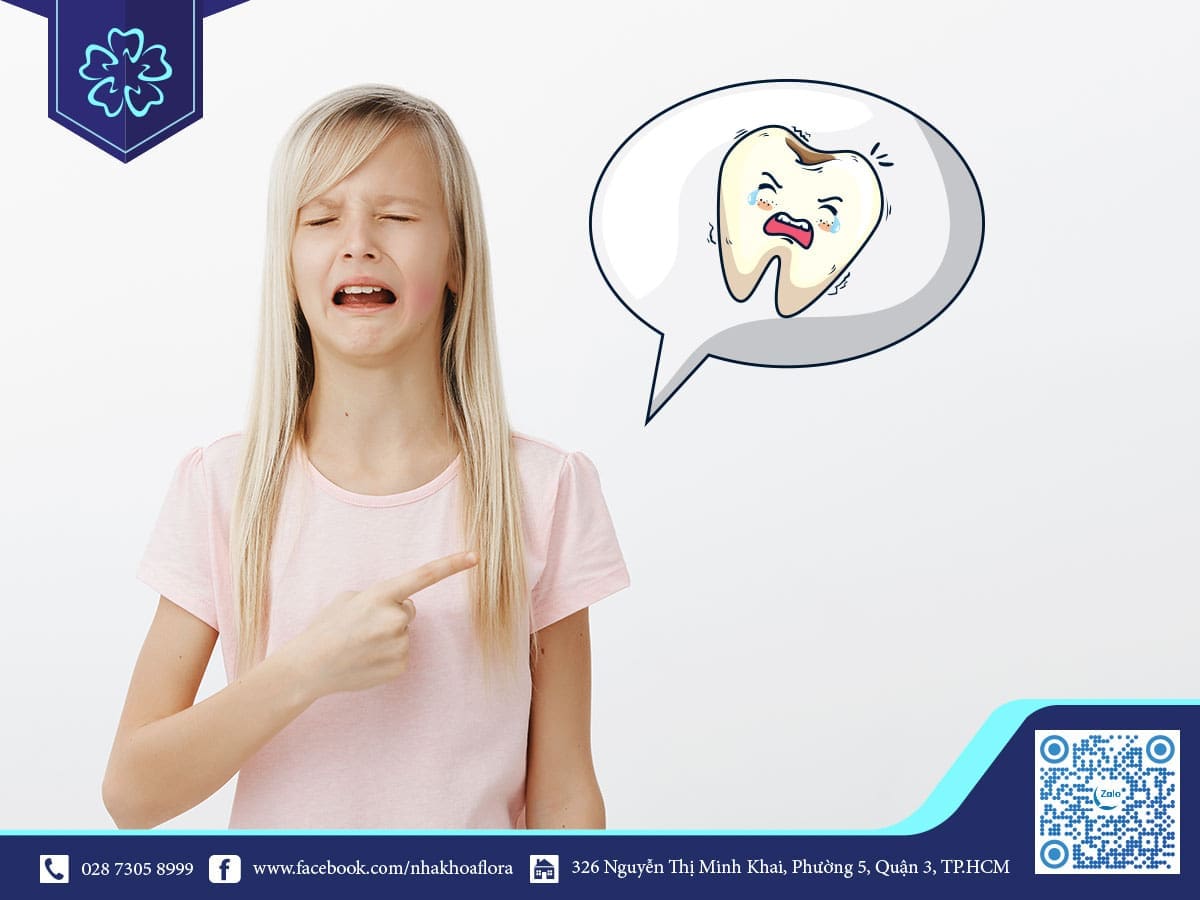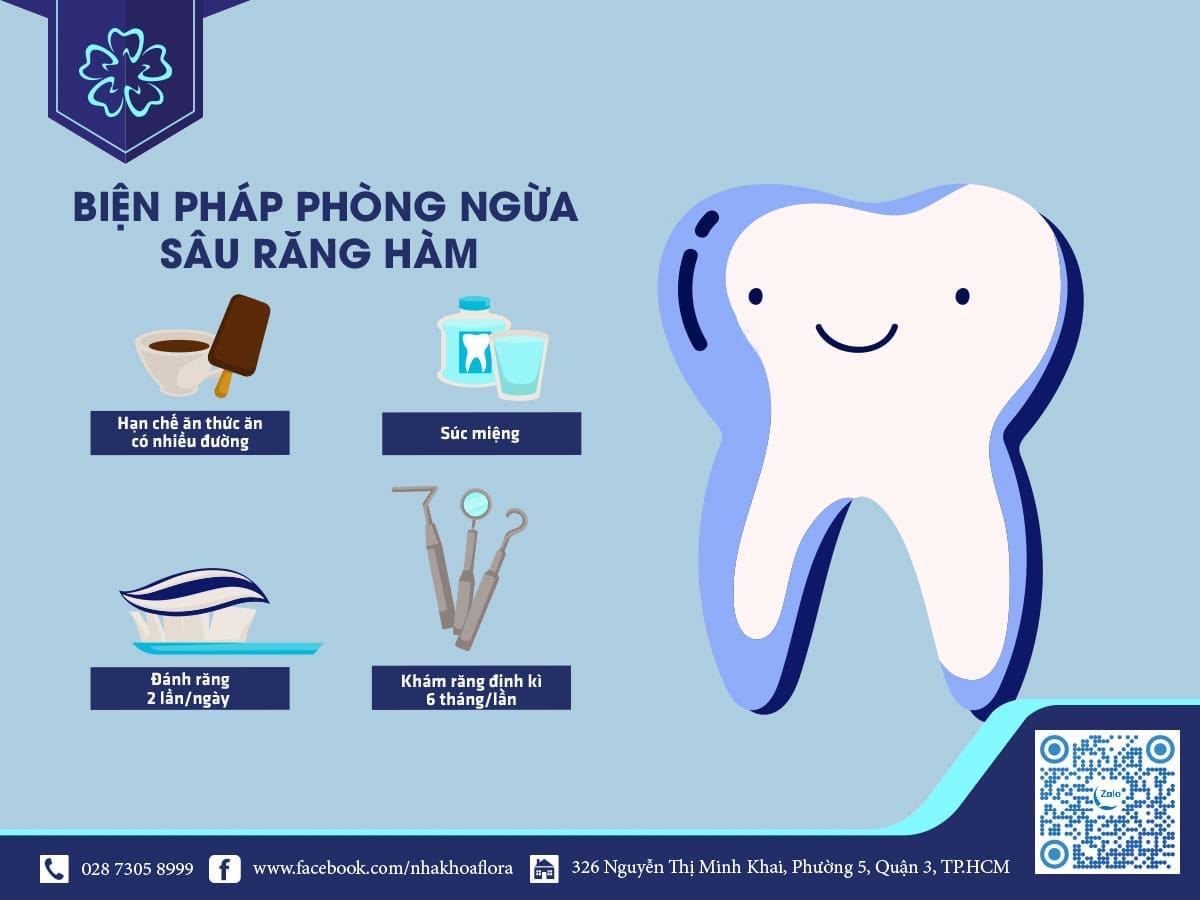Molar cavities are the main cause of prolonged toothache, children often eat sweets but do not clean their teeth properly. However, you can help your child prevent this condition. Let Flora Dentistry learn the article below to better understand the causes and overcome the pain of the child !
1. Causes of prolonged toothache
Most children are at risk of tooth decay. The enamel in children is usually thinner and softer, making the teeth vulnerable and leading to tooth decay. Molars play an important role in chewing and grinding food. At the same time, due to the location deep inside, the molars also have the risk of decaying more if not cleaned. Food sticks to the teeth, plaque forms over time will create conditions for bacteria to appear, long-term development will cause children to have long-term toothache.

Bacteria detected in tooth enamel are caused by sugar in foods and drinks to produce acid that damages the enamel. Normally, saliva will help protect the teeth and wash away these agents. However, over time when saliva is no longer protective, the enamel corrodes at the opening of holes known as cavities.
In addition, many parents subjectively and think that the teeth of children are milk teeth and can be replaced into permanent teeth so do not pay attention to observe and carefully care for their children’s teeth. This will affect your baby’s teeth from an early age. Therefore, the cause of prolonged toothache is molar cavities and not proper oral hygiene.
2. Harmful effects of lingering molar cavities
The function of chewing, grinding food if damaged will lead to prolonged, unpleasant toothache will cause the process of food processing to be affected. Your child will chew food and swallow food down the stomach, which will affect his digestive system.
Severe cavities occur in the molars, causing children to have to remove this tooth before the age of replacement (starting at age 6), the gums are likely to dry out again, making it difficult for permanent molars to grow. At that time, teeth have implanted on the front, affecting the structure of both jaws and causing many health and aesthetic problems.
Moreover, tooth decay is not treated in time, leading to many serious complications such as pulpitis, periodontitis, forming an abscular abscular…
3. Treatment for molar cavities for children
Depending on the current stage of cavities, decayed molars can be treated using a variety of methods.

- New stage of cavities: If new teeth appear dark brown grooves or the worm is not severe, the dentist will use specialized materials to refill the cavities. This helps prevent the growth of bacteria that cause tooth decay.
- Severe stage of tooth decay: The molars are forced to be removed, the permanent teething may later be affected. Talk to your dentist to find the most suitable treatment.
- When molar cavities in children cause a lot of pain and discomfort, you can give paracetamol in doses to children to relieve pain temporarily.
4. Measures to prevent molar cavities for babies.

- Parents remind children to rinse their mouths with water after eating sweets or processed foods with high sugar.
- Practice oral hygiene at least 2 times a day and rinse your baby’s mouth with salt water. Brush your child’s teeth from an early age or instruct them to brush their teeth properly. The whole family can brush their teeth together every day so that the child feels interested in performing personal hygiene.
- Do not forget to take your child to the dentist periodically to promptly detect and treat tooth decay, if any. Molar cavities in children are often difficult to detect when viewed through the eyes but need to be carefully examined by the dentist.
